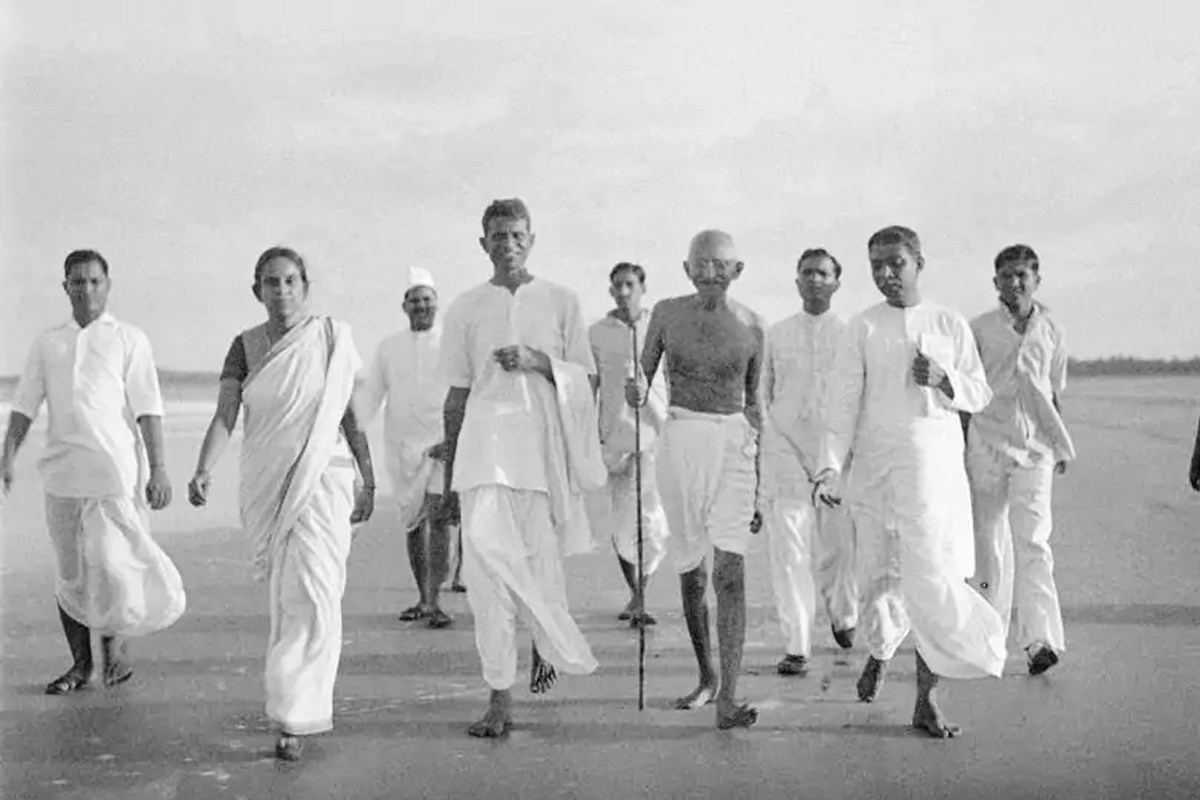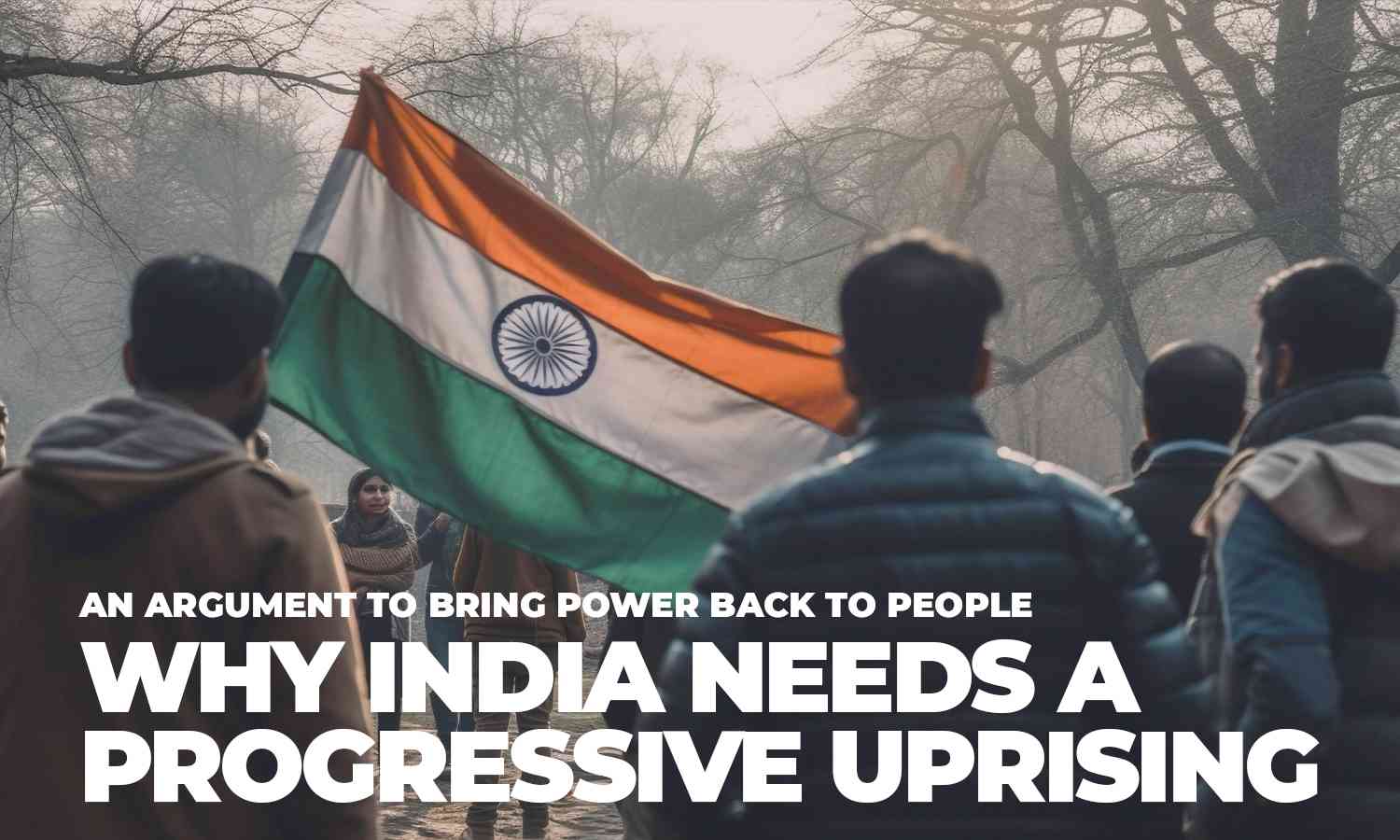Foreword:
Over the past decade, the world has witnessed a seismic shift towards right-wing populism, marked by uber-nationalist rhetoric, majoritarianism, and the erosion of social welfare frameworks. India, under the shadow of this global trend, has seen its political landscape dominated by a toxic brand of nationalism that prioritises cultural homogeneity over pluralism, corporate interests over labour rights, and divisive identity politics over inclusive development. From the United States under Trump to Brazil under Bolsonaro, the rise of authoritarian-leaning regimes has emboldened exclusionary policies, weakened democratic institutions, and deepened societal fractures. In India, this ideological shift has manifested in controversial labour reforms, the dilution of environmental protections, and the marginalisation of minority voices—all while inequality reaches grotesque heights.
Against this backdrop, the need for a progressive counterbalance has never been more urgent. A Progressive-Socialist uprising is not merely a political alternative; it is a necessary corrective to restore equilibrium in India’s power structures, safeguard worker rights, and reclaim the nation’s founding promise of "justice, liberty, equality, and fraternity".

India's Diversity - Turning Strength into Weakness through Artifical Hate Mongering
We were once a land of unity, or at least a nation that promoted unity for the sake of becoming a stronger more unified nation. But somewhere down that line, we have let hate mongers let us be divided, turn us bitter and filled us with hate for our own Indian kin. It's easy to point a finger to the politics of divide, but when have politicians not done that? I want to blame us, take responsibility for not doing enough to preserve the sanctity of our most vital resource - Our people. And through that responsibility, I want to be in a position to do something about it. We need to stop our in-fighting. We need to stop bickering. We need to stop cheering for pettiness and call out bigotry when we see it. In short, we need to be brave again. We need to understand that when we are divided, as a people, as a nation, as a unit; only the bad people gain from it.
We are a nation of diverse beauty, of a spectrum of cultures richer than any other nation in the world. We have the priviledge to be all colours at once. We are a nation that can boast that in our country - "Kos Kos pe badle paani, Chaar Kos pe Baani". Homogenity only favours the ones who are too weak to make in a competetive environment, so they want to tilt the scales towards their own selves. And they will make you bend towards themselves by any means necessary - 'Saam, Daam Dand, Bhed'. It's our responsibility to not fall for any of it.

India is and always should be a Socialist Secular Democratic Republic
In the heart of India, where the Ganges flows and the Himalayas stand tall, a quiet but profound transformation is brewing. It is not the kind of change heralded by booming GDP figures or glittering skyscrapers, but one rooted in the struggles of farmers, factory workers, students, and marginalised communities. It is a call for justice, equality, and dignity—a call for a Progressive uprising.
India, a nation of staggering contrasts, stands at a crossroads. On one hand, it boasts of being the world’s fastest-growing major economy, a global IT hub, and a nuclear power. On the other, it grapples with rampant inequality, systemic caste oppression, environmental degradation, and the erosion of democratic institutions. The chasm between the privileged few and the disenfranchised many has never been wider. In this context, the need for a Socialist resurgence is not just ideological—it is existential.

The Crisis of Inequality
India’s economic growth story, often celebrated in social media, boardrooms and international forums, has a darker underbelly. According to Oxfam’s 2023 report, the top 1% of Indians own more than 40% of the nation’s wealth, while the bottom 50% struggle to make ends meet. This grotesque inequality is not an accident but the result of policies that prioritise corporate profits over public welfare. Privatisation, deregulation, and tax cuts for the wealthy have become the norm, while public healthcare, education, and social security remain chronically underfunded. Socialism, with its emphasis on redistribution and social justice, offers a counter-narrative. It envisions an India where wealth is not hoarded by a select few but shared equitably. It calls for progressive taxation, robust labour rights, and universal access to basic services—a vision that resonates deeply in a country where millions still live in poverty.
This vision is not new. It echoes the ideals of revolutionaries like Chandrashekhar Azad, Bhagat Singh, and Rajguru, who were not only freedom fighters but also staunch advocates of socialist principles. Bhagat Singh, in particular, was deeply influenced by Marxist thought. His seminal essay, Why I Am an Atheist, and his involvement with the Hindustan Socialist Republican Association (HSRA) underscored his belief in a classless society free from exploitation. Azad and Rajguru, his comrades-in-arms, shared this vision, fighting not just for independence from colonial rule but for a society built on equality and justice.

The Caste Conundrum
India’s caste system, a centuries-old hierarchy of oppression, continues to shape every aspect of life. Dalits, Adivasis, and other marginalised communities face systemic discrimination in education, employment, and access to public spaces. Despite constitutional guarantees, caste-based violence and atrocities remain rampant. The socialists' commitment to caste annihilation is not just a political stance but a moral imperative. From B.R. Ambedkar to Jyotirao Phule, progressive movements have long fought for the rights of the oppressed. A modern progressive uprising must build on this legacy, challenging caste hierarchies and advocating for affirmative action, land reforms, and equal opportunities for all.
It is worth remembering that many of India’s early revolutionaries were acutely aware of the intersection between caste and class. Bhagat Singh, for instance, saw the struggle against colonialism as inseparable from the fight against caste oppression. His writings and actions reflected a deep understanding of how systemic inequalities perpetuated exploitation, a perspective that remains profoundly relevant today.

The Environmental Imperative
India’s environmental crisis is another pressing issue that demands a Left response. Unchecked industrialisation, deforestation, and pollution have led to catastrophic consequences, from air quality crises in Delhi to water shortages in Chennai. Climate change exacerbates these challenges, disproportionately affecting the poor and vulnerable. The Left’s emphasis on sustainable development and environmental justice offers a way forward. It calls for a transition to renewable energy, the protection of natural resources, and the prioritisation of community-led conservation efforts. In a world teetering on the brink of ecological collapse, this vision is not just desirable, it is essential.

The Erosion of Democracy
In recent years, India’s democratic institutions have come under siege. Freedom of the press, academic freedom, and the right to dissent are increasingly under threat. The ruling establishment’s authoritarian tendencies, coupled with the rise of majoritarianism, have created a climate of fear and intimidation. The People's movement, with its unwavering commitment to civil liberties and pluralism, stands as a bulwark against this onslaught. It champions the rights of minorities, the freedom of expression, and the rule of law. In doing so, it not only defends democracy but also redefines it as a tool for empowerment and inclusion.
This commitment to democracy and dissent is deeply rooted in India’s history. Revolutionaries like Bhagat Singh and Chandrashekhar Azad were not merely fighting for independence; they were fighting for a society where every individual had the right to speak, to question, and to dream. Their defiance of colonial oppression was as much about reclaiming dignity as it was about achieving political freedom.

Worker Protections and the Right-Wing Paradox
Have you seen how the extremely wealthy have started peddling cases for longer work hours without any mention of any complimentary compensation increase to go along with it? These are tell-tale signs of the erosion of all powers of workers' unions and the absolute absence of any kind of protection of the working masses. You might laugh it off today, but tomorrow, when these oligarchs actually mandate these in-human work ethics, what will you do, where will you go? They have systematically destroyed your safety nets, taken away your rights and turned you into nothing more than just numbers on a paysheet. This de-humanisation or workers is what leads to your demotion from human resource to just recources, primed to be manipulated and extracted from, with no thought of what it does to you as a person.
The rise of right-wing ideology globally has been accompanied by a paradoxical assault on worker rights. In India, the 2020 labour codes—touted as “reforms”—have stripped away protections for informal workers, eased retrenchment norms, and undermined collective bargaining. These policies, framed as pro-growth, disproportionately benefit corporations while leaving millions of workers vulnerable to exploitation. Similarly, in the UK and US, right-wing governments have rolled back union rights and diluted workplace safety regulations, exacerbating precarity in the gig economy.

The worker union's historical role as the vanguard of worker rights cannot be overstated. From the Trade Union Act of 1926, shaped by leaders like Lala Lajpat Rai and communist trade unionists, to the landmark labour protections enshrined post-independence, progressive movements have been instrumental in securing fair wages, safe working conditions, and social security. Today, as automation and contractualisation render jobs increasingly insecure, a revived Left must champion universal labour guarantees, strengthen unions, and resist the commodification of human dignity.
The likes of Bhagat Singh and Azad did not sacrifice their lives for an India where workers toil in sweatshops or farmers die by suicide under debt. They dreamed of a republic where labour is honoured, not exploited. Their vision demands revival, not as a relic of the past, but as a roadmap for the future.

A Call to Action
A Socialist uprising in India is not about nostalgia for a bygone era or blind adherence to dogma. It is about addressing the urgent needs of the present and building a future that is just, equitable, and sustainable. It is about reclaiming the promise of India’s Constitution - a promise of justice, liberty, equality, and fraternity. This uprising will not be easy. It will require courage, solidarity, and a willingness to challenge entrenched power structures. But as history has shown, transformative change is always born of struggle. From the anti-colonial movement led by figures like Azad, Bhagat Singh, and Rajguru to the fight for gender equality, India’s greatest achievements have come from the collective efforts of its people.
The time for a Peoples' awakening is now. Not because it is fashionable or convenient, but because it is necessary. For in the words of the great poet Faiz Ahmed Faiz, "Bol, ke lab azaad hain tere, bol, zubaan ab tak teri hai" (Speak, for your lips are free; speak, for your tongue is still yours).
Let us speak. Let us rise. Let us build a better India. Let us bring balance back into the halls of power that dictate our day-to-day living.

The views expressed in this article are personal. They do not reflect the opinions, beliefs, or positions of Vygr and Vygr Media Private Limited.
© Copyright 2024. All Rights Reserved Powered by Vygr Media.


























